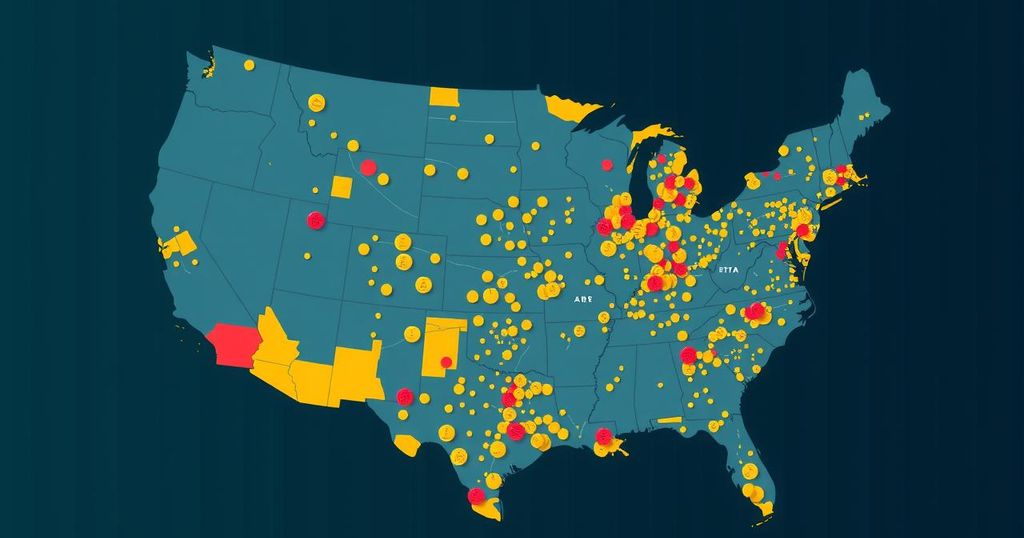Extreme weather events disrupted elections in 14 countries during the 2024 Election Supercycle, revealing vulnerabilities exacerbated by climate change. The International IDEA’s Election Emergency and Crisis Monitor analyses these disruptions, providing critical data and resources to enhance electoral resilience. Incidents of heat-related deaths in India, flooding in Austria, and hurricanes affecting the U.S. illustrate the urgent need for effective election management strategies under extreme conditions.
The 2024 Election Supercycle witnessed significant disruptions in electoral processes due to extreme weather events across 14 nations, including Bosnia & Herzegovina, India, Mexico, Senegal, Tuvalu, and the United States. Climate change intensified these incidents, impacting various electoral stages, such as voter registration, campaigning, actual voting, and result announcements. For example, severe storms delayed Prime Ministerial voting in Tuvalu, while extreme heat in India led to multiple heat-related fatalities during campaigns. In Austria, heavy rains necessitated relocating polling stations for the EU elections. Mexico’s heatwave caused severe illness among voters on election day. The United States also experienced devastation due to Hurricane Helene and Milton, resulting in significant fatalities just weeks ahead of the Presidential election.
The International IDEA’s Election Emergency and Crisis Monitor (EECM) provides extensive insights into these electoral challenges ignited by disasters, including floods, hurricanes, and wildfires. The dashboard encompasses 65 country briefs from 2001 to 2024, searchable by various criteria such as country, year, and disaster type. Each brief contains a detailed analysis of how these disasters influence electoral processes, illustrating their societal ramifications and links to climate change, and presenting procedural adaptations made to ensure electoral integrity, including relevant voter turnout statistics. Furthermore, the dashboard features a bibliography for stakeholders seeking further information on the challenges posed by disasters during elections.
The increasing frequency of extreme weather events and their connection to climate change presents significant challenges to electoral systems worldwide. As observed during the 2024 Election Supercycle, various nations faced severe disruptions that impeded essential electoral activities. This situation emphasizes the need for comprehensive monitoring and response strategies to address the vulnerabilities of electoral processes when confronted with natural disasters. It highlights the critical intersection of environment and electoral governance and the role of data-driven solutions in ensuring resilient elections.
The occurrences during the 2024 Election Supercycle reflect the urgent need for adaptive strategies in electoral management to mitigate the impacts of extreme weather and natural disasters. The insights provided by the EECM serve as valuable resources for stakeholders aiming to understand and navigate the complexities of conducting fair and effective elections in the face of climate challenges. Developing robust frameworks and contingency plans will be essential in safeguarding the integrity of electoral processes globally.
Original Source: www.idea.int







